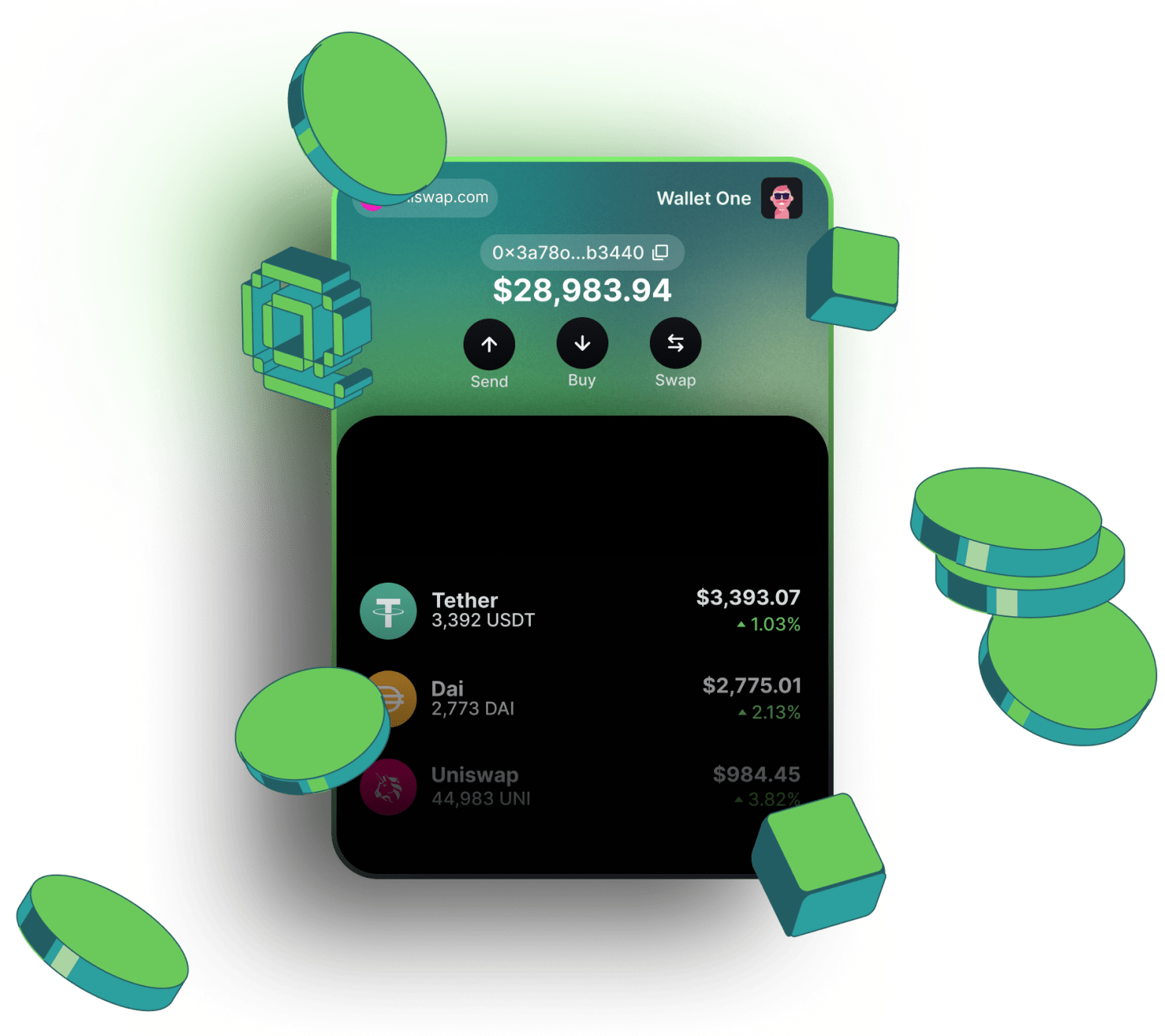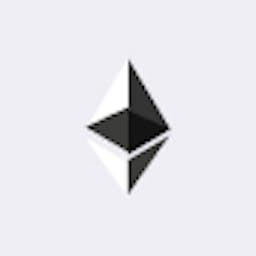Wigwam is the best  Gnosis blockchain crypto wallet
Gnosis blockchain crypto wallet

Why choose the Wigwam crypto app?
Work with Gnosis Testnets and Mainet
Buy Gnosis tokens, including native token, by using a credit card
Swap Gnosis-based tokens directly in the wallet
Possibility to connect the wallet to all Gnosis (xDai) Chain dAps: DeFi, DAO, Gamings, etc
How to get a Gnosis address in Wigwam web wallet
Create a wallet in Wigwam
Choose a Gnosis network from the dropdown menu
Copy you Gnosis address
Gnosis (xDai) chain review
Gnosis is a highly decentralized, community-led EMV-compatible chain, designed for offering low-cost, and high-speed transactions.
Gnosis allows contributors from all over the world to become validators leading to a geographically diverse set of validators (at the time of writing this article Gnosis has more than 163,621 validators), securing its ecosystem and fulfilling its core values of resilience and neutrality.
Origins and Vision
Founded by Martin Koppelmann and Stefan George, Gnosis started as a decentralized prediction market on the Ethereum blockchain in 2015 and later became one of the first projects supported by the Ethereum-focused incubator ConsenSys.
Key Milestones
Gnosis started its journey as a decentralized prediction market and technically is a new blockchain in the year 2021, the xDAI and GnosisDAO combined their ecosystem and created Gnosis Chain to address the issues of the blockchain industry.
Gnosis Chain is a separate Ethereum-based sidechain, however, the team identified the need for developing infrastructure tools to support liquidity, seeing as most of the liquidity is present on Ethereum, they started to build tools particularly targeted for it.
Gnosis’s native Arbitrary Message Bridge (AMB) allows users to send arbitrary data between Gnosis and Ethereum. This way Gnosis contracts can send data and execute smart contracts between Ethereum and other Ethereum-friendly chains.
Gnosis’s xDAI bridge is a native DAI Bridge, utilized to mint and burn the native assets xDAI.
Gnosis also has its native token bridge that mints the canonical representations of bridged assets called Omni Bridge, this bridge is built on top of the AMB.
What consensus algorithm does Gnosis use
Initially, Gnosis began its journey as a Proof-of-Authority sidechain to Ethereum, and in December 2022, its Gnosis Merge happened to align with Ethereum's new architecture, where it changed its consensus from PoA to a Proof-of-Stake.
In PoS, validators stake their $GNO token, and a random validator is chosen to process transactions and add blocks. When writing this, Gnosis has more than 163,621 validators supporting its network.
DeFi ecosystem on Gnosis
Decentralized Finance Applications are gaining popularity on Gnosis as it offers deployment of smart contracts, and five-second block-time for fast transaction confirmations, on top of that Gnosis uses its native stablecoin for gas fees which means gas prices won’t change by the second (gas fees cost .01 xDAI per 500 transactions).
Genosis’s DeFi ecosystem has decentralized exchanges like “HoneySwap”, “SushiSwap”, and “Swapr”. Lending protocols like “Orbiter Finance”, “Curve”, and “Agave”. And Derivatives like “Prep” and “Deus”. To participate in the Gnosis DeFi we will recommend to install the Wigwam dApp browser wallet.
NFTs marketplaces on Gnosis
Gnosis has a diverse set of NFT Marketplaces in its ecosystem, offering a multi-chain support and Metaverse integrations, that attracts many artists and collectors to mint, sell, and buy NFTs.
“Mint Square”, “Mintgate”, and “POAP” are some of the well-known NFT Marketplaces on Gnosis.
Tokenomics and gas usage on Gnosis
Gnosis Chain runs on a dual-token architecture as it merged with the xDAI Chain.
Gas Fee Token: Gnosis utilizes its native stable token xDAI for gas fees, offering an extremely low and stable gas fee.
Governing Token: Gnosis uses $GNO tokens for staking in its consensus mechanism, through which these tokens govern the Gnosis Chain by allowing validators to secure the chain.
Conclusion
Gnosis chain has managed to stay true to its core values with its huge set of validators and its continuous willingness to build and offer tools, native bridges, and infrastructure that allows more liquidity in the blockchain industry marking it as a chain that might have joined the race a bit late but is here to change the course of it.
FAQ
xDAI is the native stable token of the Gnosis chain utilized for gas fees, meaning Gnosis’s gas prices won’t change by the second.
Go to MetaMask, click on your profile at the top-right, and choose "Settings" from the dropdown list of options. Navigate to "Networks" and select "Add Network." Now select "Add a network manually" and input the following data into the provided fields:
Network Name: Gnosis Chain
RPC URL: https://rpc.gnosischain.com
ChainID: 0x64
Symbol: xDAI
Block Explorer URL: Gnosis Chain Blockchain Explorer
Save your changes by clicking the "Save" button.
As there is no one best wallet for Gnosis. We would recommend to use the Wigwam blockchain wallet, however you may choose other decent alternatives. “XDEFI Wallet”, “Linen Wallet”, “MetaMask Wallet”, “Ledger Wallet”, and “Obvious Wallet” are some of the these alternative options.
Put your public wallet address into the search bar of the Gnosis Chain Blockchain Explorer to view your wallet activities.
According to DefiLlama, “ReaIT”, “Balancer V2”, “sDAI”, “Aura”, and “Spark” are the most popular projects on Gnosis.





